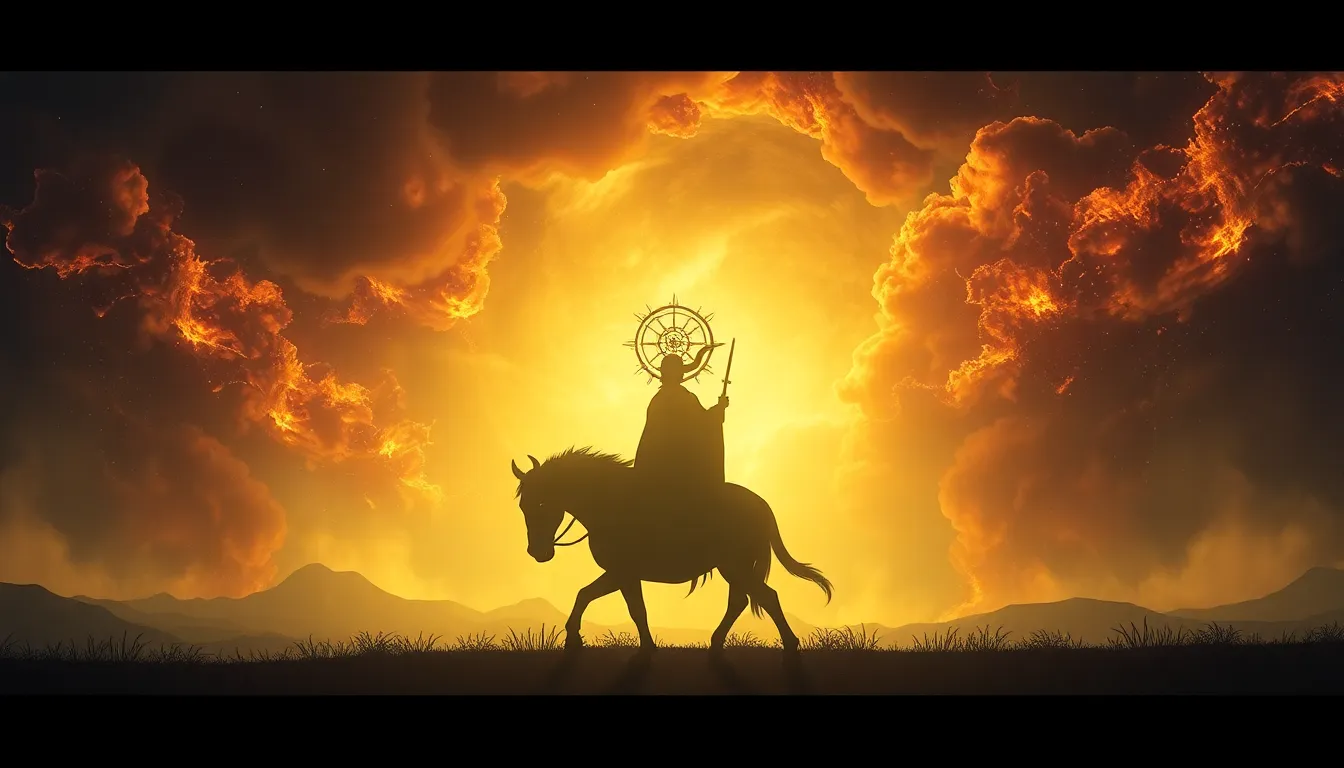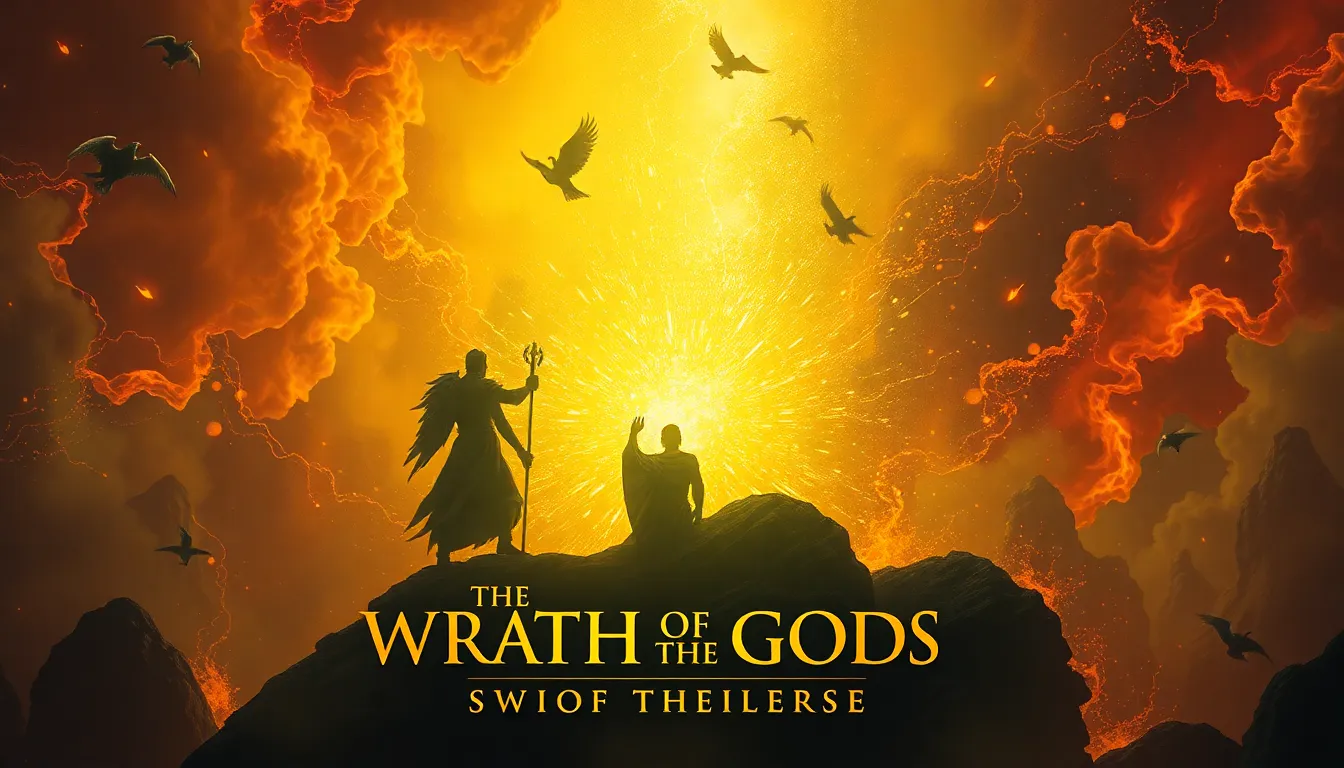When Worship Turns to Woe: Myths of Divine Punishment
I. Introduction
The relationship between worship and perceived divine punishment has long been a topic of debate and analysis within religious and cultural studies. As humanity grapples with the complexities of faith, the notion that worship can lead to suffering raises critical questions about the nature of divinity and morality.
Throughout history, various cultures have interpreted misfortunes as manifestations of divine discontent, leading to a cyclical relationship between worship and woe. This article aims to analyze the myths surrounding divine punishment, revealing the underlying cultural beliefs and psychological impacts on worshippers.
II. Historical Context of Divine Punishment
Understanding the historical context of divine punishment helps to illuminate how ancient civilizations viewed their relationship with the divine.
- Ancient Civilizations: Many early societies, such as the Sumerians and Egyptians, attributed natural disasters, plagues, and other calamities to the wrath of their gods.
- Religion and Societal Norms: Religion often served as the backbone of societal norms and moral codes, dictating acceptable behavior and prescribing consequences for transgressions.
- Evolution of Narratives: Over time, narratives of divine punishment evolved, influenced by philosophical thought and changing societal values.
III. Major Myths Surrounding Divine Punishment
Several myths have emerged around the concept of divine punishment that continue to affect the beliefs of many today.
- Divine Retribution: The belief that God punishes individuals or communities for moral failings is prevalent in many religious traditions.
- Collective Punishment vs. Individual Accountability: Some faiths posit that entire groups can be held accountable for the sins of a few, leading to significant moral dilemmas.
- Natural Disasters as Signs: Misinterpretations often lead to the belief that disasters are direct messages from the divine, reinforcing fear and anxiety among worshippers.
IV. Psychological Impacts of Believing in Divine Punishment
Beliefs in divine punishment can have profound psychological effects on individuals and communities.
- Fear and Anxiety: The fear of divine punishment can lead to chronic anxiety, affecting daily life and mental health.
- Guilt and Shame: Many worshippers experience guilt and shame as motivators for religious behavior, often leading to a cycle of self-punishment and fear of failure.
- Coping Mechanisms: While some individuals may find comfort in prayer and community support, others may resort to unhealthy coping mechanisms, such as substance abuse.
V. Case Studies: When Worship Leads to Suffering
History provides numerous examples of how worship can lead to suffering, illustrating the complexities of divine punishment.
- Historical Persecution: Throughout history, groups have faced persecution for their beliefs, often justified by the myth of divine punishment.
- Personal Testimonies: Many individuals share stories of crises of faith, often triggered by personal tragedies they attribute to divine disapproval.
- Religious Guilt and Mental Health: The burden of religious guilt can lead to significant mental health issues, including depression and anxiety disorders.
VI. Cultural Variations in Interpretations of Divine Punishment
Different cultures interpret divine punishment in diverse ways, influenced by their unique beliefs and values.
- Monotheistic vs. Polytheistic Beliefs: Monotheistic religions often emphasize a single deity’s justice, while polytheistic beliefs may view divine punishment as a function of multiple gods.
- Regional Variances: Cultural context plays a significant role in how divine justice is perceived and enacted, with local traditions influencing interpretations.
- Cultural Context: The societal backdrop can shape the understanding of punishment, with some cultures viewing it as corrective rather than punitive.
VII. The Role of Religious Leaders in Shaping Beliefs
Religious leaders play a crucial role in interpreting and shaping beliefs about divine punishment.
- Clergy Influence: The teachings of clergy can either reinforce myths of divine punishment or challenge them, affecting congregational beliefs.
- Sermons and Teachings: How sermons are delivered can significantly impact the congregation’s understanding of divine justice and punishment.
- Case Studies: Instances of leaders who have either perpetuated or refuted these myths provide insight into the dynamics of belief systems.
VIII. Alternative Perspectives: Grace and Forgiveness
In contrast to the narratives of punishment, many religious frameworks promote concepts of grace and forgiveness.
- Divine Mercy: Many faiths emphasize mercy and compassion, suggesting that divine love outweighs punitive measures.
- Examples of Love over Fear: There are numerous religious frameworks that advocate for love and acceptance rather than fear of punishment.
- Role of Forgiveness: Forgiveness is often portrayed as a healing force, allowing individuals to recover from the pain of perceived divine woe.
IX. The Modern Implications of Believing in Divine Punishment
The belief in divine punishment carries significant implications in contemporary society.
- Social Justice Movements: Many activists draw on their religious beliefs to advocate for justice, challenging the myths of divine punishment.
- Interfaith Dialogue: Understanding different beliefs about divine justice can foster constructive interfaith discussions and promote tolerance.
- Navigating Challenges: Individuals often struggle to reconcile their religious beliefs with modern issues, leading to evolving interpretations of divine punishment.
X. Conclusion
In summation, the myths surrounding divine punishment reveal much about cultural beliefs and the psychological impacts on worshippers. The relationship between worship and the perception of divine wrath is complex and deeply rooted in historical contexts and societal norms.
Re-evaluating these myths is essential for fostering a more compassionate understanding of faith, encouraging believers to embrace concepts of grace and forgiveness rather than fear and punishment.




